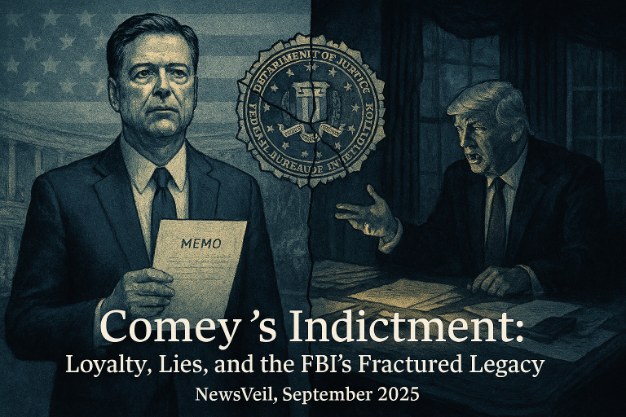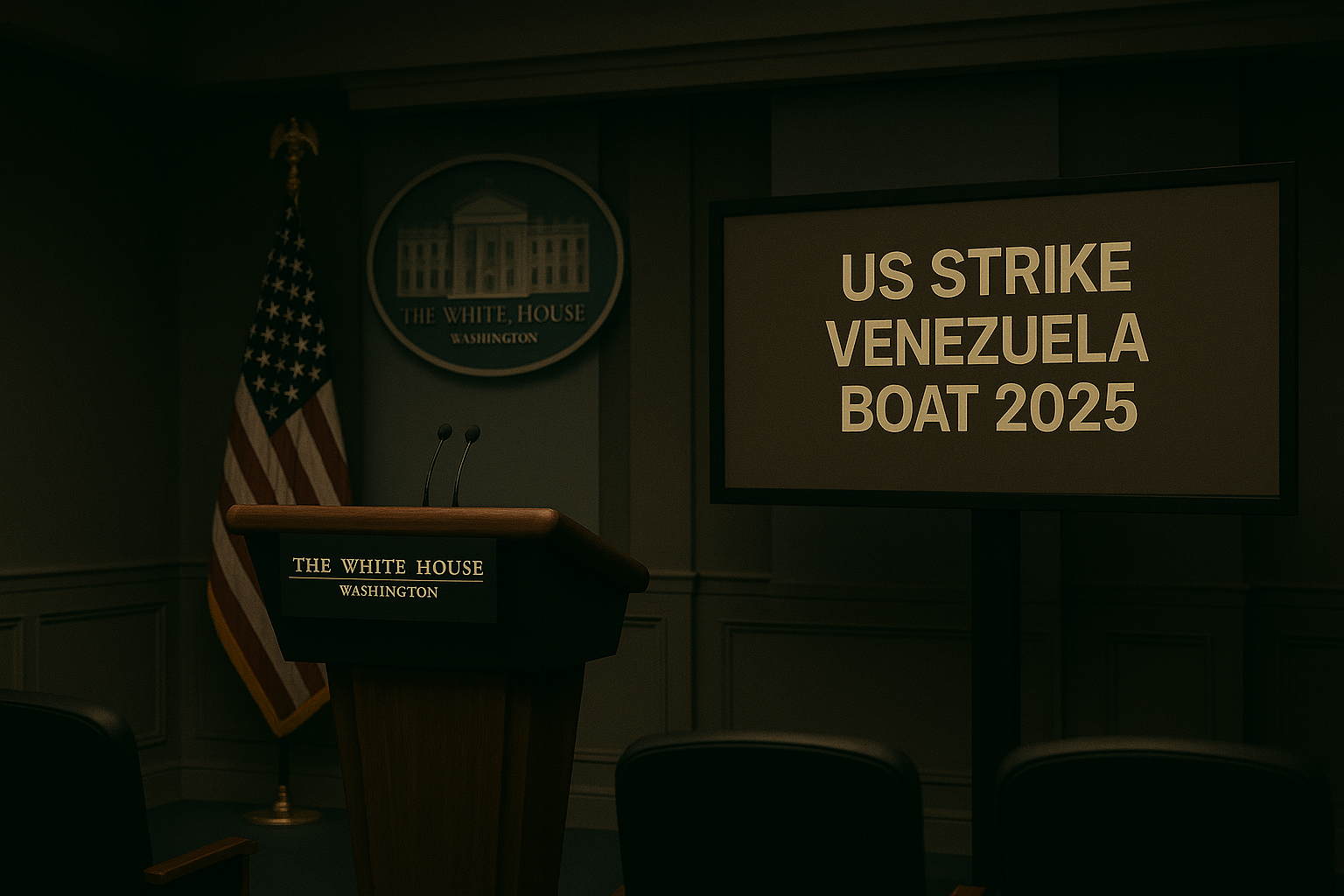A Fall from Grace: The Moment Justice Turned Inward
In the dim glow of a late-night video post, James Comey’s face fills the screen—lined with the wear of battles fought in shadows and spotlights alike. “My heart is broken for the Department of Justice,” he says, voice steady but eyes betraying a flicker of disbelief, “but I have great confidence in the federal judicial system, and I’m innocent. So let’s have a trial.” It’s a declaration that echoes through a nation still grappling with the ghosts of 2016, where loyalty oaths clashed with badges of impartiality. On this Thursday in September 2025, Comey’s indictment on charges of making a false statement to Congress and obstructing a congressional proceeding isn’t just a legal maneuver—it’s a raw fracture in the soul of American law enforcement. For a man once hailed as the FBI’s moral compass, the cuffs of accusation feel like a personal betrayal, pulling back the curtain on a feud that has simmered for eight long years.
This isn’t abstract drama; it’s the story of a public servant caught in the crossfire of power, where personal vendettas blur into institutional peril. Comey’s words carry the weight of a career defined by tough calls—and now, the sting of retribution from the very Oval Office he once entered with trepidation.
The Personal Reckoning: Comey’s World Unravels Amid Accusations
Imagine the quiet dread of a phone call that upends a life built on principle. For Comey, indicted this week on two counts tied to a 2018 congressional testimony, the charges strike at the core of his post-FBI existence. Prosecutors allege he lied about authorizing FBI colleagues to serve as anonymous sources, a claim rooted not in the Russia probe that defined his tenure, but in the bureaucratic fog of investigations touching both Hillary Clinton and Donald Trump. It’s a human unraveling: the father of three, the marathon runner who once towered over Capitol Hill, now facing the machinery he helped oversee.
The emotional scars run deeper. Comey’s 2018 memoir, A Higher Loyalty, painted Trump as a “mafia don” untethered from truth—a bold stroke that invited fury. Friends and former colleagues whisper of sleepless nights, of a man who traded the director’s suite for a life under scrutiny. Inspector General reports have long critiqued his memo-sharing after the 2017 firing, but this indictment—the first criminal case against a Trump adversary in his administration—feels intensely personal. Families like Comey’s aren’t just footnotes; they’re the quiet casualties, reminding us that behind every dossier is a dinner table shadowed by uncertainty.
The Timeline of Turmoil: Key Facts Behind the Comey Indictment
The facts form a timeline as taut as a courtroom drama. Nominated by Barack Obama in 2013, Comey led the FBI through the maelstrom of 2016: probing Clinton’s emails, which drew bipartisan ire, and launching the Russia investigation into Trump’s campaign ties. Inaugurated in January 2017, Trump quickly soured on his holdover director, demanding loyalty in private pleas and asking him to drop the probe into national security adviser Michael Flynn—a request that fueled obstruction whispers.
The breaking point came in May 2017: While Comey was in Los Angeles, Trump fired him, later admitting “the Russia thing” played a role. Special Counsel Robert Mueller’s probe followed, scrutinizing potential obstruction. Comey, in response, shared a memo of an Oval Office exchange with a friend, who leaked its essence to the press; Congress later released more. No charges then. Trump’s social media barrages persisted—”untruthful slime ball,” cries of “treason”—culminating in this week’s indictment, unrelated to Russia but echoing those old wounds.
Two counts: false statement to the Senate Judiciary Committee and obstructing proceedings. No statistics on fallout yet, but the inspector general’s harsh 2019 report on Comey’s memos laid groundwork, stopping short of criminality—until now.
Echoes of 2016: Justice Under Siege in a Polarized Era
This indictment isn’t born in isolation; it’s a flare-up in America’s enduring culture war over law enforcement’s role in democracy. The 2016 election scarred the FBI—Comey’s October letter on Clinton’s emails swung polls, per some analyses, while the Russia probe birthed Mueller’s 448-page opus, detailing interference but no collusion. Trump’s firing, probed for obstruction, tested the guardrails of executive power, much like Nixon’s Saturday Night Massacre.
Broader implications ripple outward: Trump’s public cheers for prosecutions signal a Justice Department bent toward retribution, eroding public trust in an institution already fractured by politicization. Historically, it mirrors Watergate’s comeuppance, but inverted—where once presidents feared the FBI, now a former director dreads it. Socially, it deepens divides: Democrats decry weaponization, Republicans hail accountability. Globally, it undermines U.S. soft power, portraying justice as partisan theater. Internal link: Our deep dive on Mueller Report legacies. External: AP’s full timeline of Trump-FBI clashes.
Justice’s Next Chapter: Trials, Reforms, and Lingering Doubts
What horizons await? Comey’s call for trial invites a spectacle that could vindicate or vilify, potentially reshaping DOJ norms. Reforms loom—bipartisan calls for insulating investigations from White House whims, bolstering whistleblower protections. For figures like Comey, resilience means advocacy: his post-FBI work on ethical leadership now a beacon amid the storm.
Yet adaptation demands more: Congress could tighten oversight, courts affirm independence. Globally, it lessons in fortifying institutions against populist tides—America’s story a cautionary tale for fragile democracies.
A Higher Loyalty Tested: Comey’s Stand Amid the Indictment Storm
As James Comey’s indictment casts a long shadow over the FBI’s hallowed halls, it compels reflection: In the pursuit of truth, who pays the price? His broken heart for the Justice Department mirrors our own unease—a system strained but not shattered, where innocence claims demand daylight. From the Oval Office’s echoes to a defendant’s resolve, this chapter in the Trump-Comey saga urges recommitment to impartiality. May the trial ahead illuminate not just one man’s fate, but justice’s fragile flame for all.






